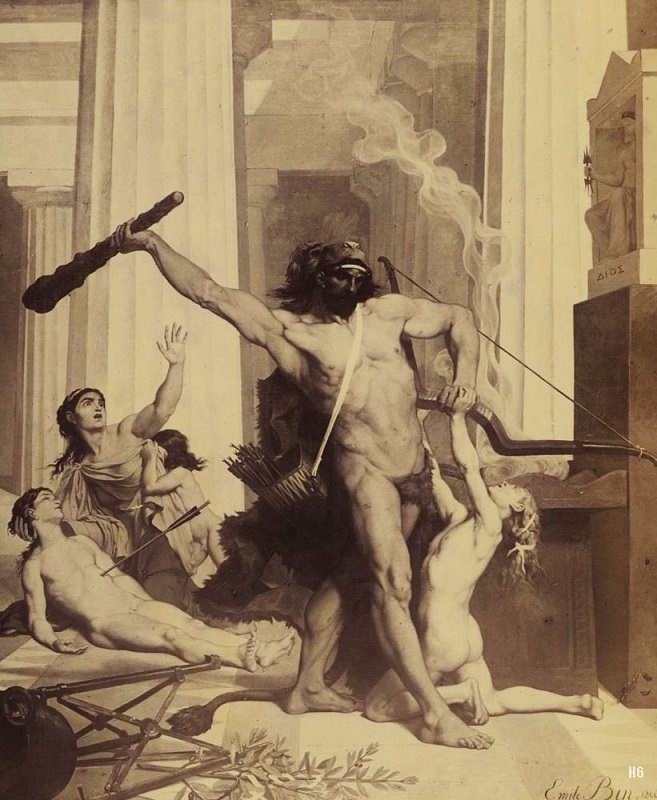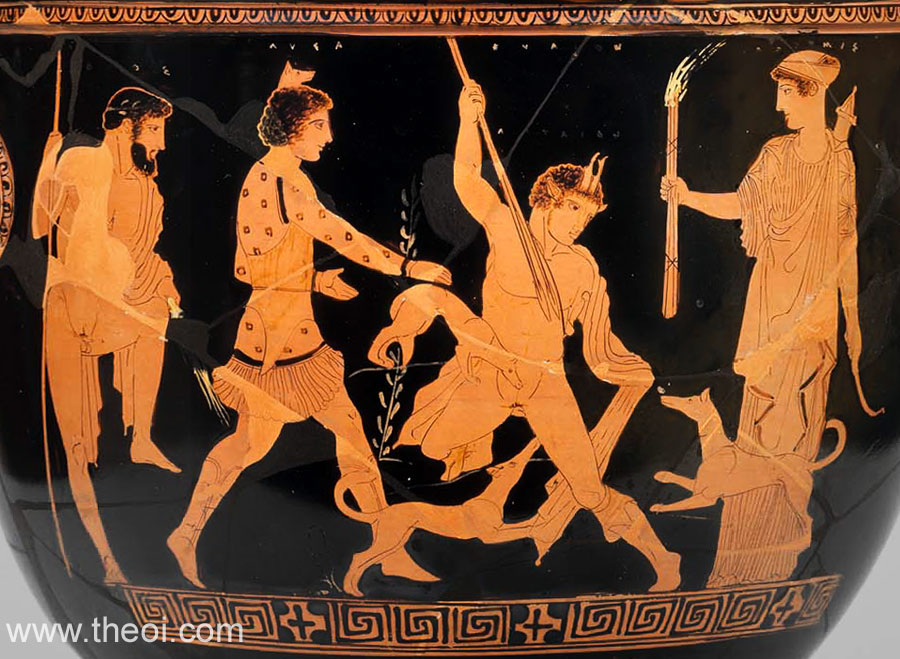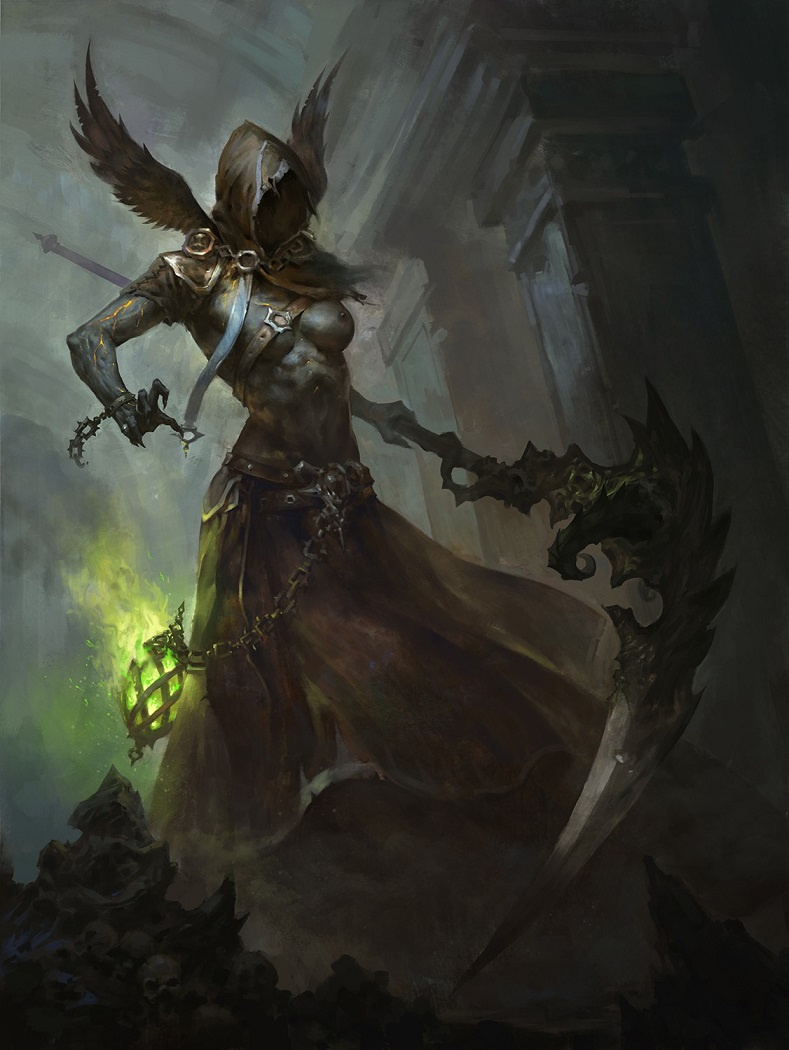Lyssa
In Greek mythology, Lyssa (Ancient Greek: Λύσσα), called Lytta (Λύττα) by the Athenians, was the spirit of mad rage, frenzy, and rabies in animals.
She was closely related to the Maniae, the spirits of madness and insanity. Her Roman equivalent was variously named Ira, Furor, or Rabies. Sometimes she was multiplied into a host of Irae and Furores.
In Euripides' Herakles, Lyssa is identified as "the daughter of Nyx, sprung from the blood of Ouranos" (that is, the blood from Uranus' wound following his castration by Cronus). The 1st-century Latin writer Hyginus describes her as a child of Gaia and Aether.
Lyssa was a figure of Athenian tragedy. In Aeschylus she appears as an agent of Dionysos sent to drive the Minyades mad, and in Euripides she is sent by Hera to inflict Herakles with madness.

HERACLES' MADNESS
Specifically, a youthful Heracles was married to Megara, daughter of Creon, when Hera, decided to enact some vengeance on Heracles, the bastard son of Hera's husband Zeus. Hera thus sent the messenger goddess Iris, to instruct Lyssa to send Heracles mad.
Lyssa thus did as she was instructed, and overcome with madness, Heracles killed his wife and children, shooting them with his bow and arrow; Heracles was only stopped in his rampage when the goddess Athena intervened.
Madness, or Lyssa, would eventually leave Heracles, but in penance for his murderous acts, Heracles would be forced to enter a period of servitude with King Eurystheus.
On the face of it this tale does not show the goddess Lyssa in a good light, but she was not an indiscriminate goddess, normally only using her powers when it was called upon, and took no joy in doing so.
Indeed, Lyssa protested when told what she must do to Heracles, but as a minor goddess she could not go against the will of Hera (in this case, she counsels Iris, who wishes to carry out Hera's command, against targeting Heracles but, after failing to persuade, bows to the orders of the superior goddess and sends him into a mad rage that causes him to murder his wife and children).

OTHER TALES OF LYSSA
Lyssa would also appear in other tales from Greek mythology, although the goddess was seen by the results rather than by the specific appearance of the Greek goddess.
Lyssa would be blamed by some writers in antiquity as the reason why the dogs of Actaeon went mad tearing their master apart; Actaeon having made the grievous error of observing Artemis naked.
It was also said that Dionysus made use of Lyssa to make the daughters of Minyas mad, causing them to rip to pieces King Pentheus. Also Lyssa was blamed for causing the daughters of the Athenian king Cecrops mad, resulting in them throwing themselves to death from the Acropolis.

Sources
GREEK
Aeschylus, Fragments - Greek Tragedy C5th B.C.
Euripides, Madness of Heracles - Greek Tragedy C5th B.C.
ROMAN
Hyginus, Fabulae - Latin Mythography C2nd A.D.
Seneca, Hercules Furens - Latin Tragedy C1st A.D.
Seneca, Oedipus - Latin Tragedy C1st A.D.
Valerius Flaccus, The Argonautica - Latin Epic C1st A.D.
Statius, Thebaid - Latin Epic C1st A.D.
OTHER
Vellacott, Phillip (trans.) (1963). Herakles by Euripides. p. 815.
Grant, Mary (trans.) (1960). The Myths of Hyginus. p. 815.













